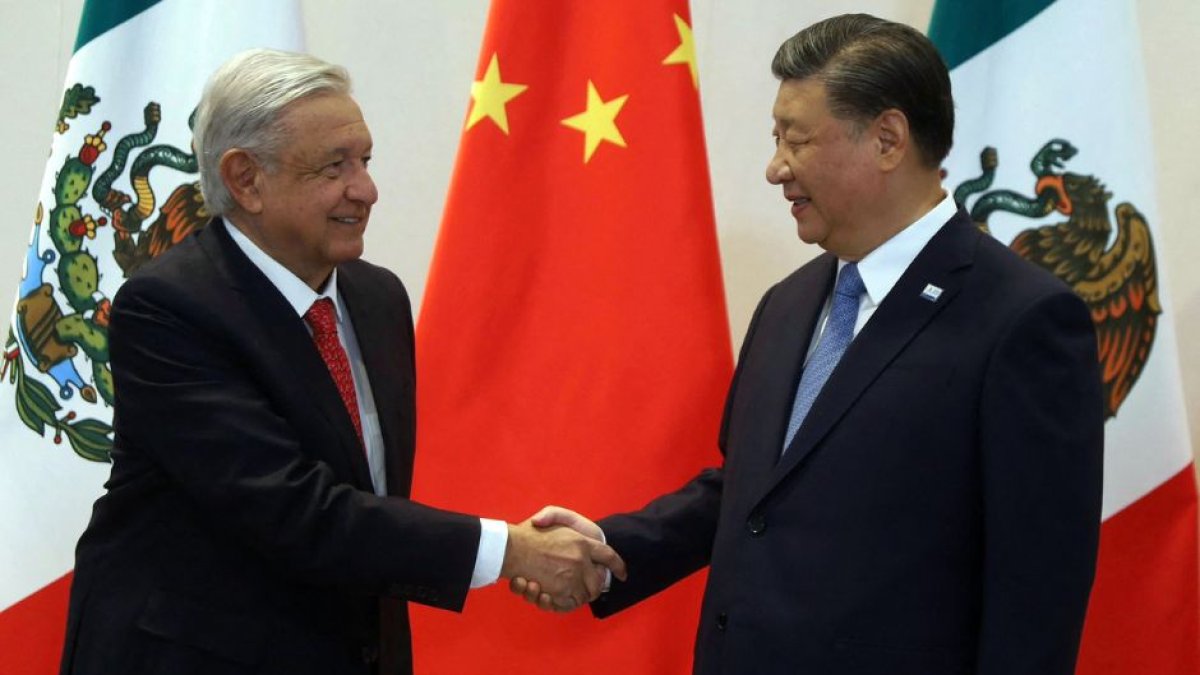China opens up to Latin America: Asian media outlets are making their way into the Mexican market
A publicly owned Chinese media corporation signed an agreement with a Mexican media company last October.

China opens up to Latin America: Asian media outlets are making their way into the Mexican market
This week, China is hosting "Two Sessions," the governance process by which the plenary sessions of the Chinese Communist Party and the National People's Congress jointly review official exercises and proposals.
Throughout this annual evaluation in China, Chinese state communication highlighted the need to end the secrecy that often surrounds state systems. China would like to open its internal functioning a little more, perhaps as a soft-power tool. At the same time, China continues to boost its investments in Ibero-American countries, not only on the industrial level, as it is trying to do with strategic alliances to boost the production of components for electric cars, but also in the communication and entertainment sector.
Last October, China set its eyes on Mexico and directed its investment towards television, something that can help the communist government get closer to the goal of communicating better abroad, as highlighted in this year's Two Sessions.
China is expanding its role in the Mexican media
In 2023, China fully entered the Mexican media sector thanks to the latest agreement between the Hunan Broadcasting System and the Hispanic television network Multimedios. Hunan is the largest media company in China, with a dozen television and radio channels among its assets, as well as content production companies.
The agreement is a cooperation agreement between both entities. It involves an exchange of programs, content and transmission rights between China and Mexico, according to the Mexican media outlet Milenio.
“We will seek to expand coverage, open specific spaces for programs and promote greater exchange of outstanding virtual products,” said Gong Zhenggwen while signing the agreements.
According to executives from both countries, the objective is to develop "media content with cross-cultural characteristics that best satisfy the needs of audiences in different regions, thus promoting cultural dissemination between both countries and contributing to improving friendly relations" and mutual understanding.
The agreement also allows the Chinese company to improve its position in the U.S. market, since several Multimedios television channels can be seen in Texas, California, Utah and New Mexico.
Proximity to the Chinese Communist Party
The Hunan Broadcasting System is publicly owned and belongs to the regional government of Hunan province, in the middle of the country. For this reason, the media company is closely linked to the Chinese Communist Party and the central government, which has tight control over the media.
Hunan TV, the company's main general content network, is the second most-watched channel in the country, only behind CCTV-1, also state-owned and managed by the central media corporation in China.
Despite its proximity to the Chinese government, Hunan has clashed with the Chinese Communist Party. In 2017, the party accused the channel of deviating from its role as a communication tool of the State and the party. Specifically, the regional committee of the Communist Party in Hunan province accused the media company of being a "platform for gay entertainment."
The following year, the company made serious changes, as the Communist Party requested through a series of recommendations aimed at the network's content. A good example of this is what happened when the Eurovision Song Contest was broadcast through Mango TV, owned by the Hunan Broadcasting Company.
During Ireland and Albania's performance at the European music festival, there were several LGBT symbols. Both these symbols and all the tattoos were grotesquely censored by the channel, which led to the termination of its broadcast agreement with the organizers of the European music festival.
Reciprocal permeability?
The role that China plays in Latin America has been expanding and flourishing for more than a decade. However, the same cannot be said when it comes to Ibero-American influence in China. There are some exceptions, such as the cases of Brazil and Argentina whose relations with China are much more complex than those of other countries in the region. In 2001, the region's exports to China accounted for 1.6% of total exports. This figure has grown to 26% in the last 20 years.
There are, however, doubts about whether there can be similar reciprocity in the media sector. The United States Institute for Peace (USIP) highlighted in a report that the expansion of Chinese state media is notable in Spanish-speaking America. Despite this, Latin American countries are far from being able to attract the Chinese public or from being active in the Chinese social media ecosystem. "Latin America needs a healthy and strong media environment to be able to tell its own stories," says the USIP report.

























